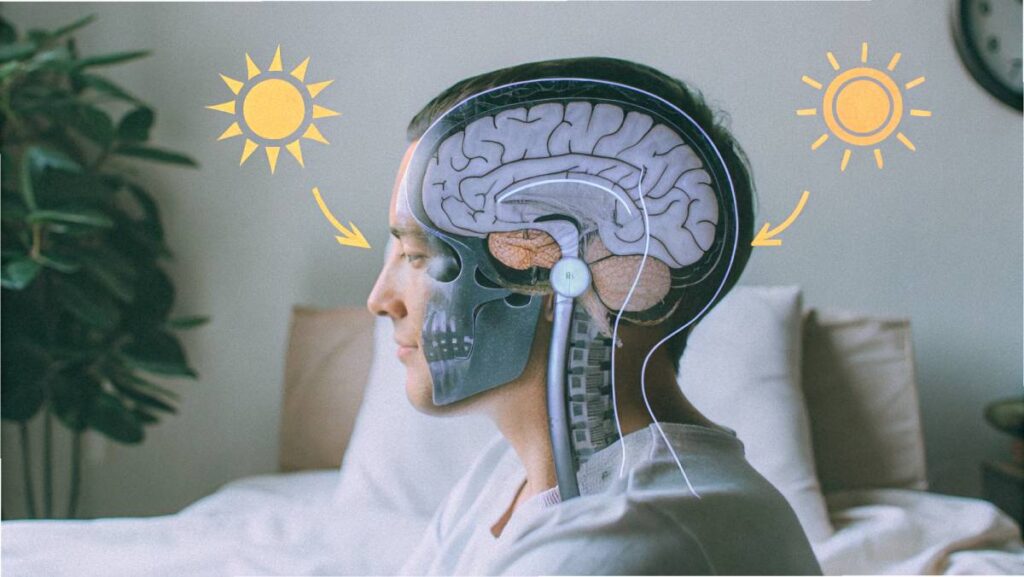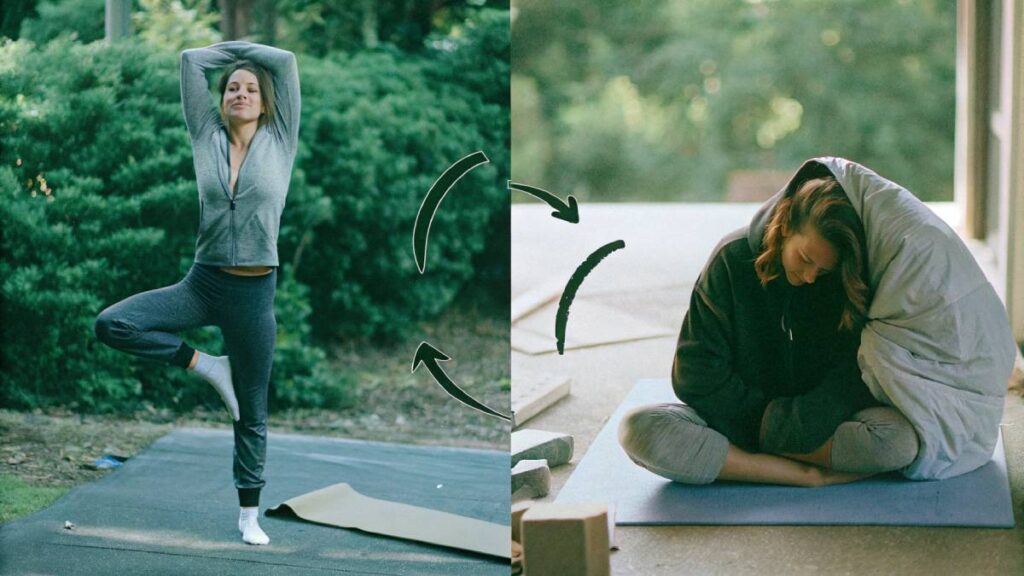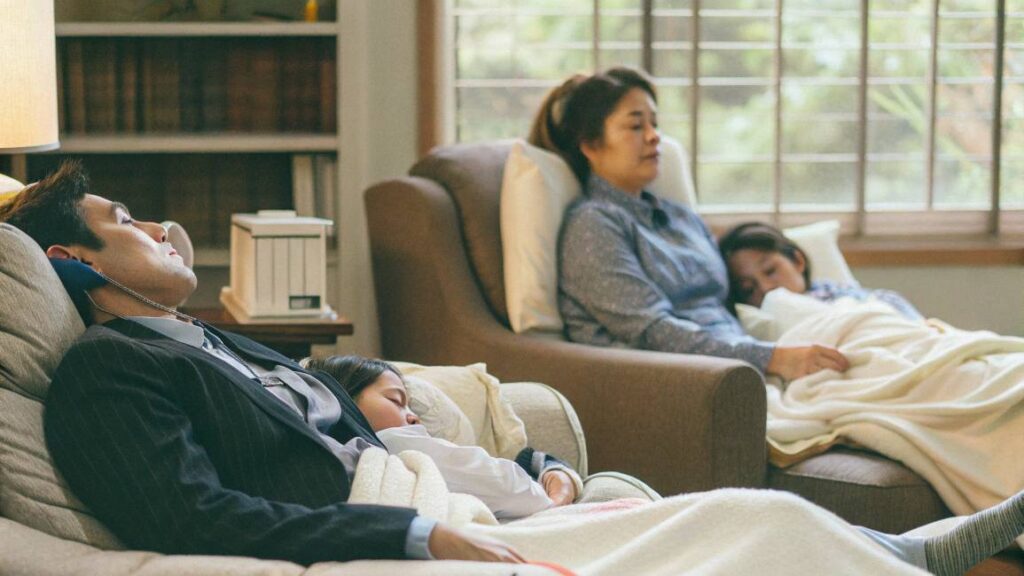Unlock the secrets to rejuvenating sleep with “Find Your Rhythm: Exploring the Wonders of Sleep Cycles.” Imagine waking up each morning refreshed, energized, and ready to conquer the day. Understanding your sleep cycles is the key to achieving this dream. Whether you’re balancing work, parenting, or the daily hustle, mastering your sleep rhythms can transform your well-being. Dive in to discover how each stage of sleep plays a vital role in restoring your body and mind, ensuring you get the quality rest you deserve.
Main Key Takeaways
- Understanding Sleep Stages: Learn the four essential stages of sleep and their unique benefits.
- Circadian Rhythms: Discover how your body’s internal clock regulates sleep and wakefulness.
- Health Impacts: Explore the profound effects of sleep cycles on physical and mental health.
- Special Populations: Tailored sleep strategies for professionals, parents, older adults, and those with chronic conditions.
- Optimization Tips: Practical advice on creating a sleep-friendly environment and maintaining a consistent sleep schedule.
Understanding Sleep Cycles
Getting a grip on sleep cycles is like having the secret sauce to feeling good and living well. Let’s break it down and see why knowing about sleep rhythms matters for anyone juggling work, kids, or just life’s daily demands.
Introduction to Sleep Cycles
Ever wonder what goes down during those shut-eye hours? Turns out, sleep’s a wild ride of phases repeating like a favorite 90-minute jam session throughout the night. Each cycle isn’t just thumb-twiddling time for your body; each stage plays its part in fixing up the body and brain.
The Different Stages of Sleep
Sleep’s got four main chapters to its story, and every bit plays a part in getting us back to feeling fresh. There’s Non-REM and REM—think of them as the dynamic duo of dreamland.
Non-REM Sleep
Stage 1: Light Sleep
- Kicking off with the dozing phase, this is where being awake starts to feel like a distant memory.
- You’re floating, with random jerks that might even wake you up just to say “not yet!”
Stage 2: True Sleep
- The air-con’s down a notch—temperature drops, and your heart slows the beat.
- It’s a tougher gig to wake you now, like your body’s way of saying, “I’m busy!”
Stage 3: Deep Sleep
- Here’s where the magic happens—tissues mend, and growth hormones do their thing.
- This is the heavy-lifting phase of sleep, fixing things up so you bounce back better tomorrow.
REM Sleep
- Stage 4: REM Sleep (Rapid Eye Movement)
- This stage is the primal scene for dreams—colorful, vivid, and often bizarre.
- Behind the eyelids, your brain is a festive flurry, taking a whirlwind tour of memories and lessons.
| Stage | Type | Characteristics | Duration (minutes) |
|---|---|---|---|
| Stage 1 | Non-REM | Light sleep transition | 1-10 |
| Stage 2 | Non-REM | True sleep, harder to wake | 10-25 |
| Stage 3 | Non-REM | Deep, restorative sleep | 20-40 |
| Stage 4 | REM | Vivid dreams, cognitive functions | 10-60 |
Knowing these stages gives a head start to snooze smarter. Tossing in top-notch sleep habits ensures each sleep stage shines through. Want some handy tips? Swing by our page on sleep hygiene and learn to set the scene for sweet dreams with a sleep-conducive environment.
The Science Behind Sleep Cycles
Grasping how sleep cycles work is a game changer for your health and happiness. Let’s crack open what makes circadian rhythms tick and why your snooze patterns matter.

Role of Circadian Rhythms
Circadian rhythms are like your body’s natural DJ, spinning the tracks for your sleep and wake-up groove roughly every 24 hours. Light, temperature, and other factors keep these rhythms in check. They’re essentially your internal alarm, telling you when to crash and when to rise.
“Circadian rhythms are the gears that keep our biological clocks running smoothly.” – Dr. Michael Breus
At the heart of this rhythm is the suprachiasmatic nucleus (SCN) nestled in your noggin. This brainy clock responds to light, regulating melatonin—the snooze hormone. If your schedule swings wildly, like if you’re working nights or globe-trotting, getting your body clock right can be tough. Setting up a regular sleep routine and making your bedroom a chill zone can help lock your rhythms down and up your sleep game.
Impact of Sleep Cycles on Health
Sleep cycles are like a well-rehearsed playlist, with each song (or stage) playing a special role in keeping your body and mind sharp. These cycles mix light snoozing, deep slumbers, and REM (dreamy) sleep.
| Sleep Stage | Duration | Primary Function |
|---|---|---|
| Light Sleep | 5-10 mins | Shutdown transition |
| True Sleep | 10-25 mins | Storing memories |
| Deep Sleep | 20-40 mins | Body repair shop |
| REM Sleep | 10-60 mins | Brain workout & dreams |
Physical Health
Hitting those sleep cycles right beefs up your muscles, grows tissues, and keeps your immune system ready for action. Deep sleep is your body’s Go-To guy for fixing and restoring. Studies show skipping this can leave your immune system as weak as a kitten. Check out more on sleep and immune health.
“Quality sleep is the cornerstone of good health and effective functioning.” – Arianna Huffington
Mental Health
Your brain needs sleep cycles to keep running smoothly, especially REM sleep where dreams roll in. It’s prime time for dealing with emotions and shoring up learning and memory. Skipping it might wrestle up moods like a grumpy bear. Want the scoop on sleep and mood? Here’s our take on mental health and sleep.

Special Populations
Different folks need different strokes when it comes to sleep cycles. Hardcore workaholics may find it tough to juggle work with rest and could use some strategies to finesse their sleep quality. Parents often wrestle with keeping both their own sleep and their kids’ on track; it calls for some clever strategies for family z’s. Older folks see their sleep depth cut back, shooting up the need for tips on better sleep habits. We’ve got all the hacks for boosting sleep for every crowd over at sleep and wellness.
Understanding how circadian rhythms fit into sleep cycles can be a sleep-lovers’ guide to better shut-eye. By laying down a sleep-conducive crash pad and sticking to a set sleep jam, you can ramp up your z’s and your life.
The Four Stages of Sleep
Getting the lowdown on sleep cycles means understanding the different stages. Each stage packs a punch when it comes to your health and well-being. Let’s break down these snooze stages:
Stage 1: Light Sleep
Stage 1 kicks off the snooze fest. It’s the warm-up stretch where you’re barely asleep and can snap awake at the drop of a hat. Your body chills out, but sometimes a good ol’ muscle twitch sneaks in.
| Stage | Description | Duration (minutes) |
|---|---|---|
| Stage 1 | Light Sleep | 5-10 |
It’s really the gateway to deeper sleep. Think of it as the light switch flipping from day mode to night mode.
Stage 2: True Sleep
Hitting Stage 2 means you’re settling in. Heartbeat slows, you’re less heated, and it’s all about recharging.
| Stage | Description | Duration (minutes) |
|---|---|---|
| Stage 2 | True Sleep | 10-25 |
Your brain waves take a chill pill but have the occasional rock concert, aka sleep spindles. This stage is when your brain starts filing away memories and data like a pro.
Stage 3: Deep Sleep
Stage 3 is where the magic happens. It’s the heavy-duty repair shop for your body. You’re fixing up muscles, patching up tissues, and beefing up your immune squad.
| Stage | Description | Duration (minutes) |
|---|---|---|
| Stage 3 | Deep Sleep | 20-40 |
The brain switches to its lowest gear with slow-motion delta waves. Wake up from this stage, and you’ll bounce out of bed ready to rock. It’s a heavy hitter for your immune and mental health.
Stage 4: REM Sleep
Stage 4—welcome to the dream factory. Your brain is in overdrive, crafting those vivid dreams.
| Stage | Description | Duration (minutes) |
|---|---|---|
| Stage 4 | REM Sleep | 10-60 |
Here, your eyes are busy bees, darting about under your lids. It’s prime time for mood management and memory tweaks. Miss out, and you’re looking at just crummy stress management and a bogged-down brain.
These sleep stages each bring their own flavor to the mix, making sure you wake up ready to take on anything. Want to spruce up your shut-eye game? Check out our tips on sleep routine and bedroom vibes for better sleep.
Importance of Sleep Cycles for Different Groups
Everyone sleeps, but not everyone sleeps the same. Different groups face their own sleep hurdles, and it’s crucial to understand what sleep needs look like for each.

Busy Professionals
So, you’re maybe that go-getter chasing deadlines, but here’s the catch: missing sleep messes with your mojo. It’s not just about being tired – it’s your focus that takes a nosedive, and your stress levels skyrocket.
| Where It Hurts | How Lack of Sleep Shows Up |
|---|---|
| Productivity | Focus? Gone. Efficiency? What’s that? |
| Decision Making | Let’s just say, you’re not Sherlock. |
| Stress Busting | The stress monster comes knocking. |
It’s worth making bedtime a ritual and learning to kick stress out – your work life will thank you!
Parents
Oh, parents. Those little night owls (your kids) keep you busier than bees in sunflower fields. Interrupted sleep cycles have you wandering like zombies, making day duties that much trickier.
| Sleep Saboteur | What It Does to Your ZZZs |
|---|---|
| Night Wakings | Bye-bye, deep dreams! |
| Dawn Riser Kids | Sleep minutes are a rare gem |
Consider testing out some breathing exercises at bedtime. And that shared bedroom? It could use a makeover to feel more like a sleep haven.
Older Adults
Aging shifts your sleep baggage; less sunshine hours and more wake-ups got you feeling fuzzy. Maintaining that brain and body ain’t no easy feat.
| Sleep Change | Health Snag |
|---|---|
| Less Deep Sleep | Memory’s not what it used to be. |
| Broken Sleep | Risky business for sleep issues |
Gentle movements like yoga, and grub that fuels great sleep, can really make bedtime something to look forward to.
Individuals with Chronic Health Conditions
Those battling long-term health issues might not be on the snooze cruise due to symptoms or meds doing their thing. Bad sleep only piles more on the health load.
| Condition U-Turns | Sleep Trouble Spots |
|---|---|
| Painful Episodes | Deep sleep, who? |
| Breathing Struggles | Nights full of wakefulness |
Think nature’s sleep helpers and a mattress that’s got your back – literally. They’ll really help smooth your sleep ride.
When understanding sleep for different groups, it’s about matching the bedtime habits to keep everyone tip-top. Dive into more advice with our pieces on healthy sleep rituals and the mental boost of better sleep.
Optimizing Your Sleep Cycles
Getting those zzz’s right can make a world of difference for how you feel each day. Let’s chat about how setting up your room just right and sticking to a sleep routine can boost your snooze game.
Creating a Sleep-Friendly Environment
Giving your bedroom a makeover for sleep might just be what Dr. Dream ordered. Here’s how to set up a snooze zone that’ll have you counting sheep in no time:
- Comfy Bed: A cozy mattress and pillows are must-haves. Need help picking? Check out our article on the best beds for comfort snoozing.
- Lights Out: Keep it dark, folks. Blackout curtains can keep unwanted light at bay.
- Silence Please: If noisy neighbors or city sounds are bugging you, try white noise machines, or plug in some earplugs.
- Feeling Cool: Keep it chilly – the sweet spot’s around 60-67°F (15-19°C).
- Tech Free Zone: Kick those gadgets out that mess with your melatonin mojo.
Wanna dig deeper into setting up your ultimate slumber space? Peek at our guide on tweaking your bedroom for top-notch rest.
Establishing a Consistent Sleep Schedule
Having a steady sleep routine is like your internal clock’s bestie. Here’s how to keep that rhythm in check:
- Regular Bed & Wake Time: Hit the sack and rise at the same times, even on lazy Sundays.
- Nap Wisely: Keep nap time to a quickie (20-30 minutes) and not too close to hitting the hay. Our piece on power naps that pack a punch can help.
- Nighttime Rituals: Wind down with some chill activities, maybe like reading or chillin’ with some meditation.
- Ditch the Stimulants: Cut out caffeine and smokes in the PM.
- Snack Smart: If you’re peckish, keep it light before bed. Get more deets in our article on how grub affects sleep.
| Steps to Consistent Sleep Schedule | What To Do |
|---|---|
| Bedtime and Wake Time | Stick to it daily |
| Nap Timing | Keep it short (20-30 mins) |
| Evening Chill | Relaxing stuff only |
| No Caffeine/Nicotine | Avoid those |
| Bedtime Snack | Light if needed |
Stick to these habits and you’ll be sleeping like a log. For more ways to polish your sleep routine, visit sleep hygiene strategies.
Setting up your space and keeping your sleep alarm set can make a huge difference. If counting sheep ain’t cutting it, read up on natural ways to drift into dreamland.
Main Tips
- Maintain a Regular Sleep Schedule: Go to bed and wake up at the same time every day.
- Create a Sleep-Conducive Environment: Keep your bedroom cool, dark, and quiet.
- Limit Exposure to Screens Before Bed: Reduce blue light from devices at least an hour before bedtime.
- Avoid Caffeine and Heavy Meals in the Evening: These can disrupt your ability to fall asleep.
- Incorporate Relaxation Techniques: Practice meditation, deep breathing, or gentle yoga to unwind before sleep.
Conclusion
Embracing the intricate dance of sleep cycles can dramatically enhance your quality of life. From the gentle transitions of light sleep to the profound restoration during deep sleep and the vibrant activity of REM sleep, each stage contributes to your overall health and well-being. By recognizing the importance of circadian rhythms and tailoring sleep habits to your unique lifestyle, you can overcome common sleep challenges faced by busy professionals, parents, older adults, and those with chronic health conditions. Implementing a sleep-friendly environment and a consistent sleep schedule not only boosts your physical health but also sharpens your mental clarity and emotional resilience. Make sleep a priority, and watch as your days transform with newfound energy and vitality. Start your journey to better sleep today and unlock the full potential of your nightly rest.
FAQs
What are the different stages of sleep?
Sleep consists of four main stages: Stage 1 (Light Sleep), Stage 2 (True Sleep), Stage 3 (Deep Sleep), and Stage 4 (REM Sleep). Each stage plays a unique role in restoring your body and mind.
How do circadian rhythms affect my sleep?
Circadian rhythms are your body’s internal clock that regulates sleep and wakefulness over a 24-hour cycle. They respond to light and other environmental factors to help you fall asleep and wake up at consistent times.
Why is deep sleep important for my health?
Deep sleep is crucial for physical restoration, including muscle repair, tissue growth, and immune system strengthening. It also supports mental health by consolidating memories and processing emotions.
How can I improve my sleep environment?
To enhance your sleep environment, ensure your bedroom is cool, dark, and quiet. Invest in a comfortable mattress and pillows, eliminate noise and light disturbances, and create a tech-free zone to promote better sleep quality.
What are some tips for maintaining a consistent sleep schedule?
Maintain a regular bedtime and wake-up time, even on weekends. Avoid caffeine and heavy meals before bed, establish a relaxing nighttime routine, and limit naps to 20-30 minutes earlier in the day.
Resources
- National Sleep Foundation
- Centers for Disease Control and Prevention: Sleep and Sleep Disorders
- Mayo Clinic: Sleep Stages
- Harvard Medical School: The Science of Sleep
- Sleep Research Society
Final Thoughts
Mastering your sleep cycles is more than just logging hours of rest—it’s about enhancing every aspect of your life. By understanding and optimizing each stage of sleep, you pave the way for improved physical health, sharper mental acuity, and emotional stability. Whether you’re striving to excel in your professional life, manage the demands of parenthood, gracefully age, or navigate chronic health challenges, quality sleep is your foundation for success. Embrace the strategies outlined in this guide to create a sleep routine that aligns with your unique needs and lifestyle. Prioritize your sleep today, and experience the transformative power of truly restful nights and vibrant days.
Recommended Products and Accessories
- Memory Foam Mattress
- Experience unparalleled comfort and support for a restful night’s sleep.
- Blackout Curtains
- Ensure your bedroom stays dark and serene to enhance sleep quality.
- White Noise Machine
- Block out unwanted sounds and create a peaceful sleep environment.
- Adjustable Bedside Lamp
- Perfect for creating a relaxing atmosphere without harsh lighting.
- Comfortable Pillows
- Choose the right pillow to support your neck and improve sleep posture.








